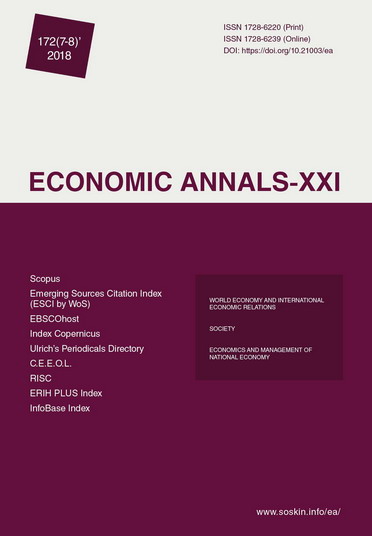The impact of trade openness on foreign direct investment in Sudan by sector in the 1990-2017 period: an empirical analysis
The impact of trade openness on foreign direct investment in Sudan by sector in the 1990-2017 period: an empirical analysis
Author(s): Abdel Mahmoud Ibrahim Tahmad, Anass Hamad Elneel AdowSubject(s): Economy, National Economy, Business Economy / Management, Financial Markets
Published by: Institute of Society Transformation
Keywords: Foreign Direct Investment; FDI; Trade Openness; Exports Efficiency; Sub-Saharan African Countries; Sudan;
Summary/Abstract: The impact of trade openness on foreign direct investment (FDI) has been debatable. This study investigates long-run equilibrium relationships between trade openness and FDI in the Sudanese economy by sector within the 1990-2017 period. The study employs Johansson co-integration technique. The findings of the analysis show that there is a long-run equilibrium relationship between trade openness and FDI flow estimated at a negative value of 0.53 for the aggregate economy when using trade openness in terms of exports plus imports over GDP. The current study applies either the export index or export efficiency measurement. The degree of openness was estimated at positive values of 0.17, 0.9, and 0.55 for the aggregate economy, the agricultural sector and the industrial sector, respectively. The results indicated that for the studied period (1990-2017), the FDI flows for the aggregate economy by sector are determined by the degree of trade openness in terms of their joint measurement. Furthermore, the magnitude of the degree of the industrial trade openness model is robust one and the government should prioritise this sector with regard to exports. Besides, the government should encourage the manufacturing sector, therefore improving infrastructure and promoting concentration of FDI in the country’s production sectors, in particular those which support the paradigm that Sudan, like many Sub-Saharan African countries, should promote its primary exports to transform from an underdeveloped country to a developed one. The study recommends that, according to magnitude of industrial sector trade openness degree, government should exert more effort for its diversify in order to identify this sector as a leading sector utilising trade efficiently and hence prioritize it in the export.
Journal: Економічний часопис - ХХІ
- Issue Year: 172/2018
- Issue No: 07+08
- Page Range: 14-21
- Page Count: 8
- Language: English

